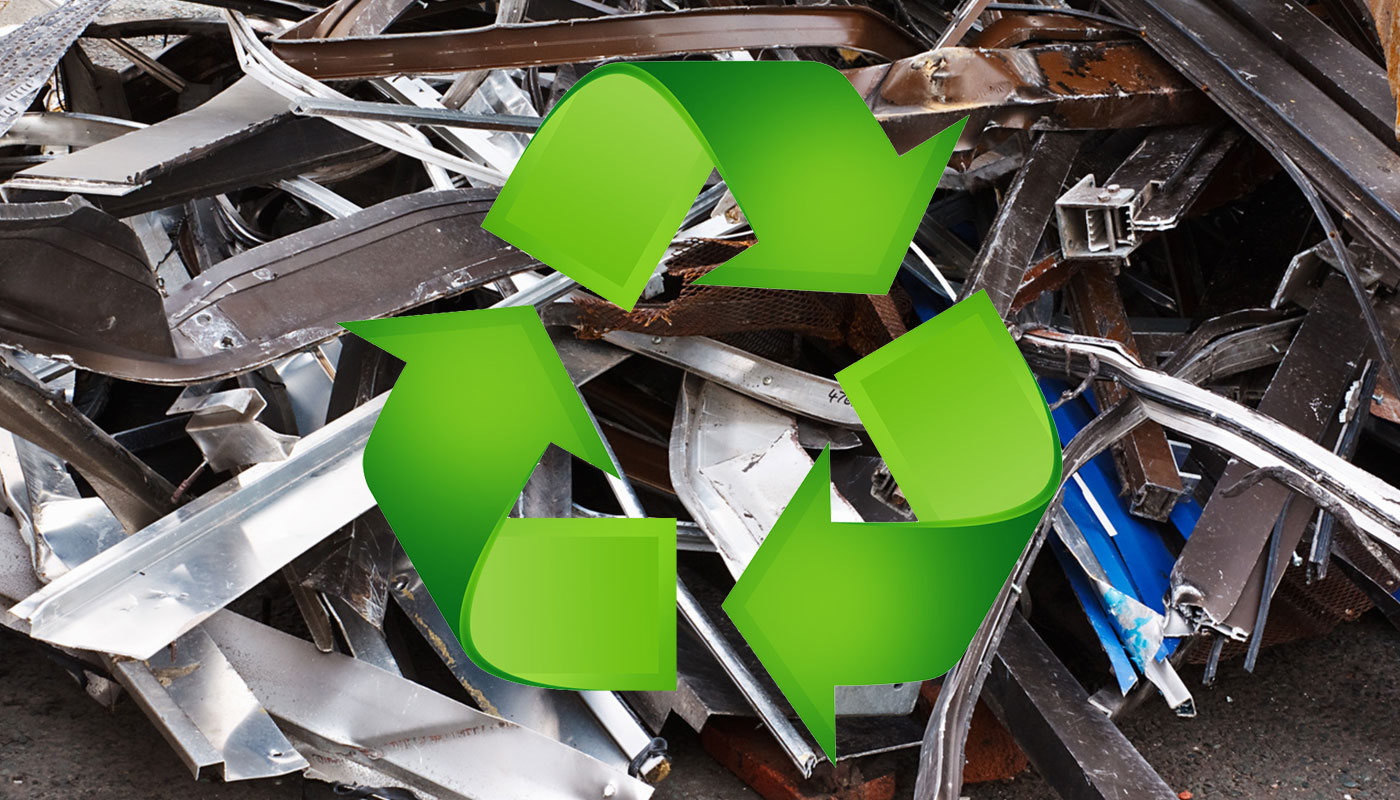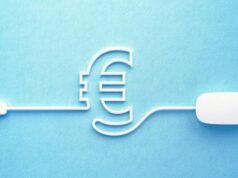Due to little knowledge of metal recycling, most metals end up in garbage and water sources. In the long run, such practices are costly to the environment and expensive to mitigate. Recycling, reusing, and trading scrap metals offer a great way to make extra cash while protecting the environment. These processes reduce waste and save energy requirements in producing new materials.
Scrap metal is valuable as you can melt it down into other products. The value of your scrap is dependent on the material. Proper collection and organization are necessary to get the best value from your scrap. Sorting your scrap as you accumulate rather than waiting for the sale day is a good practice. This way, you can focus on high-quality metal for good payment from sales at your local yard.
Learn how to make money from copper, brass, aluminum, and carbide recycling.
Copper Metal Recycling
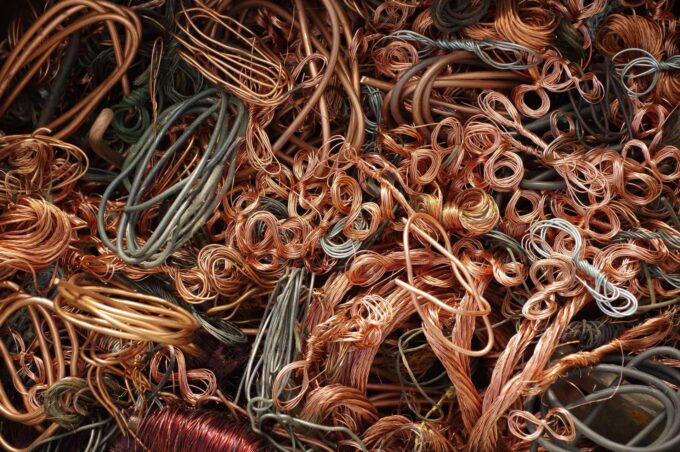
Copper has diverse uses; you can find its content almost in every industry. Apart from its electric and heat qualities, copper has antimicrobial properties, making it useful in medicine. Copper is also resistant to corrosion, and electronics, plumbing, construction contractors, utility service providers, and manufacturing and machining industries embrace its use.
As an electric conductor, copper is precious and useful in making wires and cables, including the THW and THWN/THHN. These wires have a plastic sheathing for protection. Copper requires less insulation, and its ability to stretch ensures optimum functionality.
Compared to aluminum, brass, or carbide recycling, copper ranks as the most valuable, and selling a good quality and quantity of copper scrap will boost your margin. To get the most value from copper recycling, separate your copper scrap from other metals before the sale, and remove contaminants like plastic, paint, or other coatings. Monitoring the fluctuating scrap prices is also an excellent strategy for selling your scrap at the best prices.
Scrap Aluminum Recycling
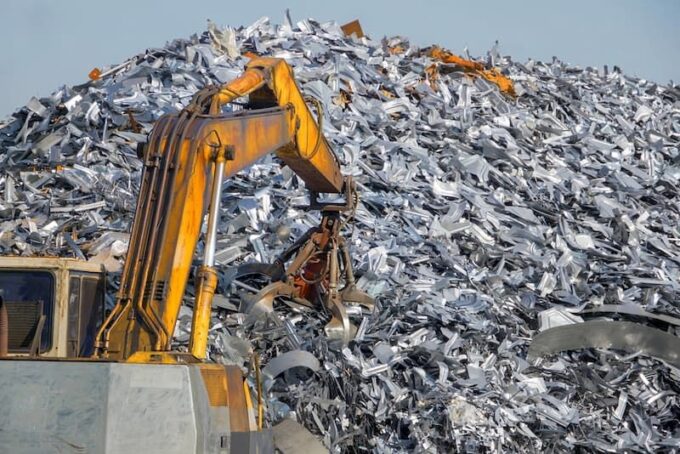
Aluminum ranks as the most common metal on earth and is completely recyclable. Statistics reveal that up to 75% of aluminum ever mined worldwide is still used today. Aluminum is common in household containers, aeronautic equipment, and automotive and sporting goods, courtesy of its lightweight, strength, and non-corrosive features. This metal is a strong heat conductor useful in consumer electronics, technology applications, and power lines. In the construction sector, you can also find aluminum scrap in window and door frames, hardware, wiring, and roofing materials.
Given the above uses of aluminum, there is constant demand, explaining its relatively stable scrap value. However, like copper, brass, and carbide recycling prices, aluminum recycling will experience shifts based on demand and supply.
Therefore, getting the best prices for your aluminum calls for selling the best quality. Most industrial components are not purely aluminum. Hence, to get the most from aluminum scrap recycling, you should separate your metal from other metals and coatings, such as paint and rubber.
Scrap Brass Recycling
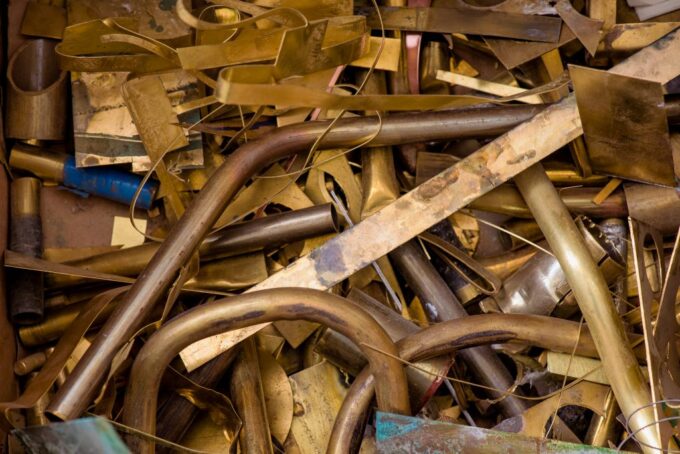
Brass is a mixed metal alloy comprising zinc and copper. Its non-corrosive property qualifies it as a good candidate for scrap metal recycling. The brass recycling process, being an alloy, is more technical, and partnering with a scrap recycling yard near you can simplify the process. Energy costs for brass recycling are lower than copper, aluminum, and carbide recycling, and you can recycle the metal several times without impacting its composition.
Brass has several industrial uses, from mechanical to decorative. This metal is useful in automotive, plumbing, electrical, machining, manufacturing, and general contractor industries. You can find brass in home finishes, doorknobs, musical instruments, and bed frames. Its durability makes it an excellent metal for ammunition shells, automotive radiators, and pipe fittings.
Since brass is an alloy, the value from recycling will vary depending on the copper and zinc contents. Copper is a more valuable metal than zinc, and brass with a higher copper content will sell at higher prices. Brass with more metal contaminants will sell at relatively lower prices.
When considering your scrap brass value, check for three brass distinctions, red, yellow, and dirty brass. The red brass, found in sprinklers and pumps, has copper content with little lead and tin traces. Yellow brass is common in the automobile industry. As the name suggests, the dirty brass contains paint, metals, and oil and glass contaminants.
Since brass combines several metals, separating your scrap from contaminants like wood, plastic, and rubber will increase its sales value.
Of the three mentioned so far, copper ranks as the most valuable due to its purity. Still, certain brass alloys can fetch a good price.
Carbide Recycling
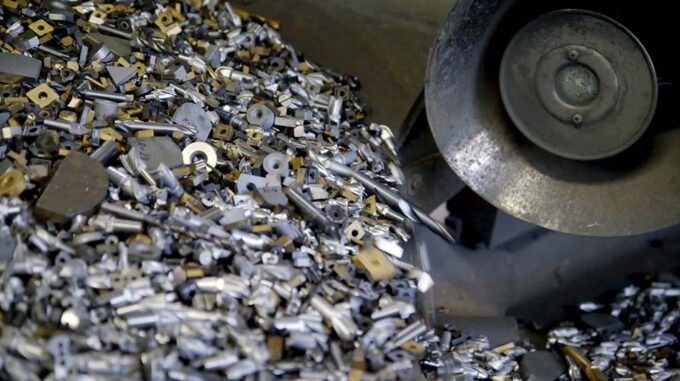
Carbide is a strong and dense metal with a high melting point, hence suitable for mining, drilling, and machining equipment. This metal is also useful in making dental instruments, jewelry, and surgical tools. Carbide is available in sludge, dust, and solid pieces.
Like the above metals, carbide recycling for money is dependent on the following factors:
The Metal Market Price
Your carbide scrap selling price will depend on the prevailing market prices. Unlike Copper and Aluminum, carbide prices have a wide range of fluctuations, and you should research the market prices to ensure a profitable sale.
Condition Of The Metal
The condition of your carbide will dictate its selling price. Carbide metal with high tungsten content will sell at a higher price. Hence, separating your carbide from contaminants like paint, rubber, and other metals will also boost its price.
Type Of Carbide
Solid carbide will sell at a higher price than carbide mixed with other metals. In the latter case, the buyer will also evaluate the tungsten content, further impacting the prices.
Making Sure You Get The Best Scrap Value
Getting the most from the scrap you turn in involves a combination of careful planning, efficient collection, and strategic selling. Here are some best practices to help you get the most value from your scrap metal:
- Keep an eye on market fluctuations. Metal prices can vary greatly, so selling when prices are high can significantly increase your earnings.
- Follow safety protocols to handle scrap metal. Heavy or sharp objects can cause injury if not handled carefully.
- Invest in the right transportation methods, such as a truck or trailer, to transport large quantities efficiently.
- Ensure you comply with local and national laws and regulations regarding scrap metal collection and sales. This includes obtaining any necessary permits or licenses.
- Consider investing in basic processing equipment like a metal baler or shredder if you regularly deal with large volumes of scrap. This can increase the value of your materials.
- Keep accurate records of your scrap metal transactions, including weights, types, and prices. This can help you identify trends and make better-informed decisions.
- Research local scrap yards and recycling centers to find the ones that offer the best prices for your specific materials.
Get Rid Of Your Scrap Metals For Money Today

Scrap metal can earn you good money through a sale to a local yard for recycling. If you have copper, aluminum, brass, or carbide components in your home, consider trading them for money. An experienced scrap metal recycler will test your metal to establish its constituents and pay you depending on its value and prevailing market prices. Therefore, sorting your scrap by removing components such as paint can increase their value. Through scrap metal recycling, you will earn extra cash and save Mother Nature, making her a safe place for generations.

